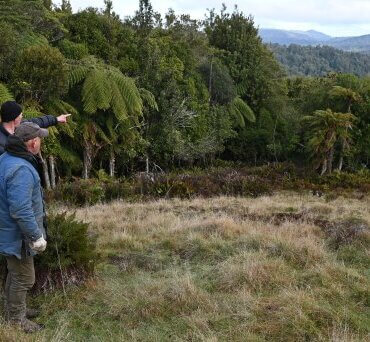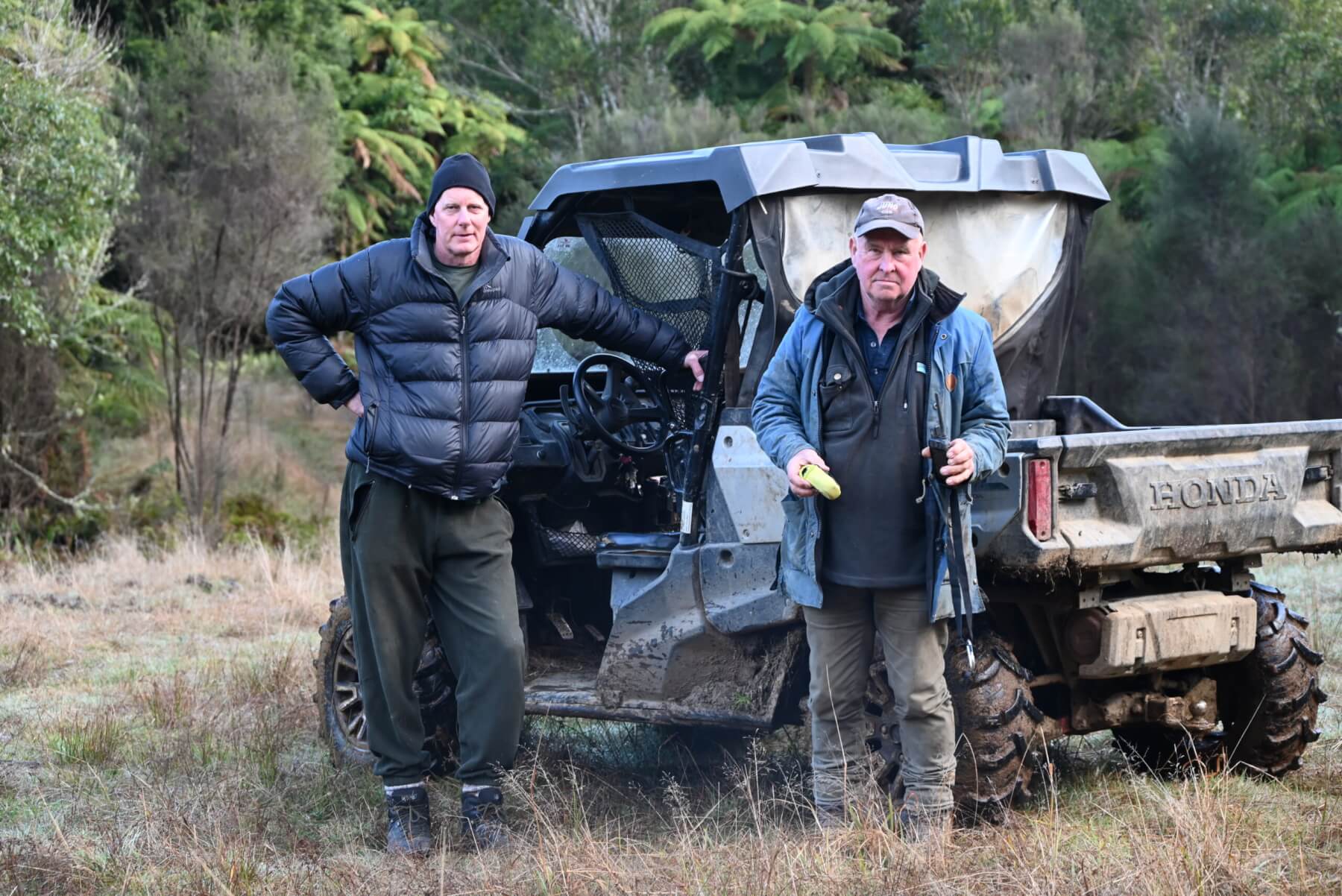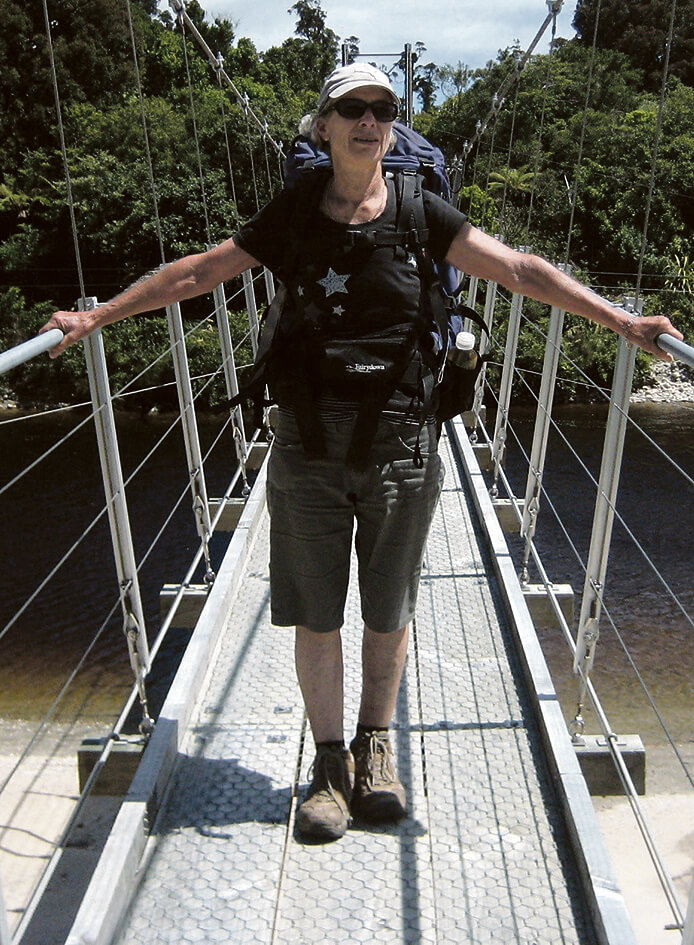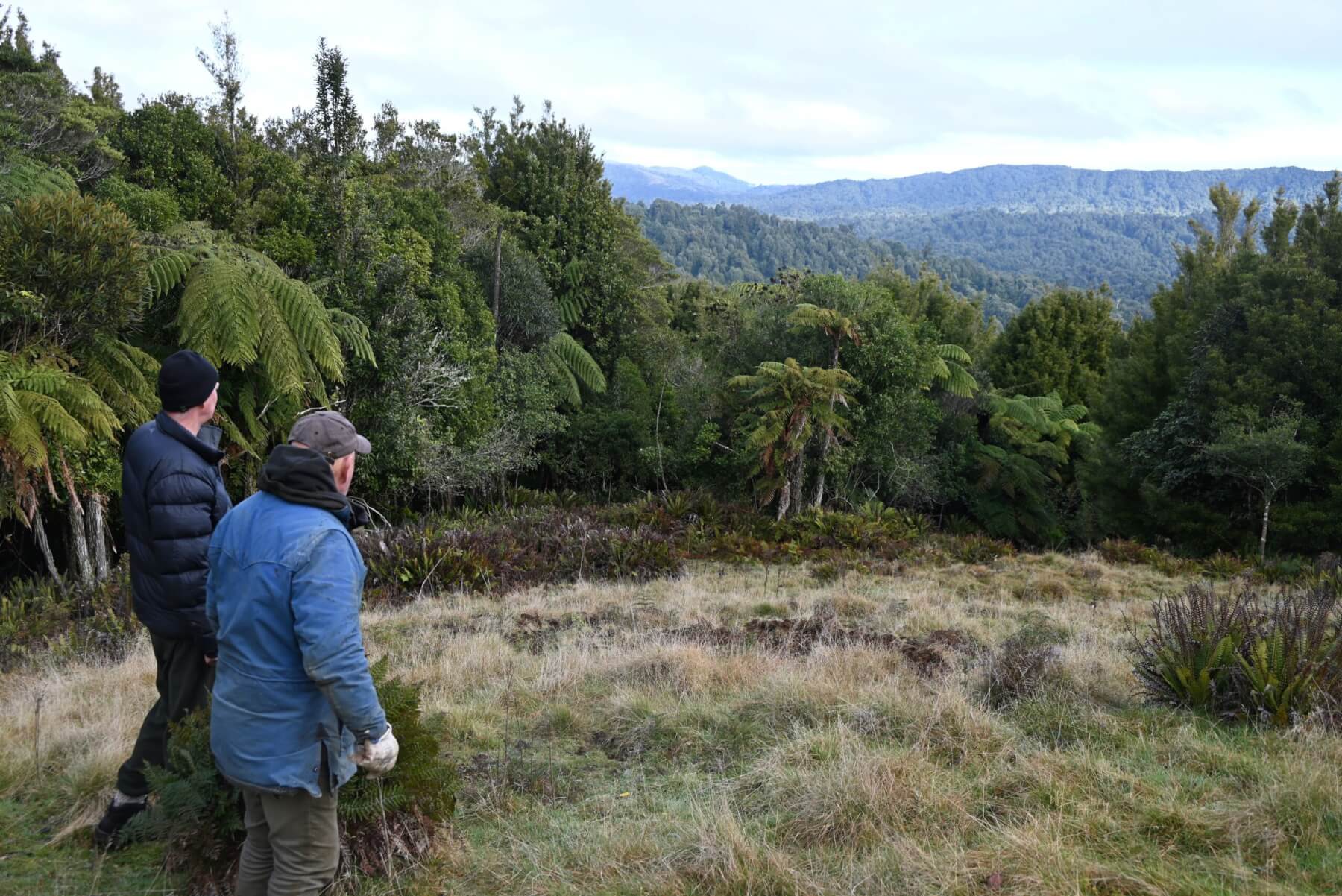
The idea of locals with bush knowledge forming a rapid response search and rescue group has been floated by Waitomo resident Allen Juno.
His suggestion follows the disappearance on Saturday, March 23, of a south Auckland tramper in part of the Pureora Forest Park close to a farm Juno owns at Ngaroma.

Experienced hunter Dominique Fortis, left, with Ngaroma farm owner Allen Juno. Juno is holding EPIRB and GPS units which he says each member of the tramping party should have been carrying. Photo: Paul Charman
Judy Donovan, 79, was the subject of an intensive but unsuccessful eight-to-nine-day search.
Juno said he has spoken to many residents whose properties back onto Pureora Forest Park, and pig and deer hunters familiar with the area.
“We are all concerned about health and safety rules which excluded us from joining the search in the critical first few hours following the report that Judy and two of her companions were missing,” he said.
“We are not blaming the police because they had a terribly difficult job to do that day and were dutybound to operate under health and safety and various other rules which they must now follow.
“But, in the early stages of the search, there was too little information forthcoming. It is crucial to get people with local experience involved early.
“We think after Judy was separated from her companions her survival in such cold conditions could have been measured in hours, not days.”

Judy Donovan “was a fit, agile, capable and practical 79-year-old retired businesswoman and lifestyle block farmer”.
Juno had gone to his farm to operate his bulldozer on March 23, starting work about 7am.
“But it was so cold and the fog and rain so heavy that I decided to pull the pin after about an hour.”
Several factors likely led to the tragedy, including the Pukekohe Tramping Club’s decision to work in such appalling conditions.
“Then there was Judy’s own decision to walk out ahead of her companions, the fact that the others did not stop her doing so and the lack of sufficient emergency position indicating radio beacons (EPIRB), or a GPS.
“Each member of the group should have been carrying an EPIRB, which gives your location and a GPS, which shows you how to walk out.
After the two men Donovan had initially been missing with (one of whom had an EPIRB) were accounted for at about 10 pm, police told Land Search and Rescue the search had to be suspended till the next day, as they were unable to provide oversight.
This referred to the fact that the police officer responsible for radio communications had to go off duty as he had already worked eight hours.
“But there were experienced fit people there, who knew the area, who were prepared to step in and search all night, if need be,” Juno said.
“There was little in the way of communication with us.”
“At the very least people who live on the boundary of the Forest Park could have driven to where their farms back onto the bush and sounded their horns all night. That’s the old school way of guiding lost people out of the bush around here.
“Anyone could have become disorientated, especially in the extreme rain and wind that day. But if you hear noise coming from the right direction, you are able to walk towards it.”
He is working on forming a group based upon the concept of locals with knowledge of specific areas being invited to join a rapid response unit, which could swing into operation should such a situation occur again.
It would draw interested parties from right across the King Country, who would hear the concept outlined at a meeting to be held at the Waitomo Caves Tavern. A meeting date would be advertised in the King Country News.
“As we see it, the advantage of a private group is that we are not bound by all same rules Land Search and Rescue must now operate under.
“We would be able – were a situation like this to occur again – to put boots on the ground in the critical first few hours. It would be similar in concept to the cave rescue group which operates at Waitomo.
“We’re well aware that hindsight is a wonderful thing. We’re not saying that we would have been able to have saved Judy’s life had we been encouraged to enter the search area right away.
“What we do believe is that the early involvement of people who have hunted this area, in some cases for decades, represented Judy’s best chance of survival.”
See: Thanks, with advice

Experienced hunter Dominique Fortis, left, with Ngaroma farm owner Allen Juno.








